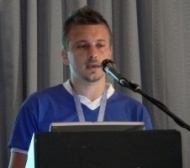Training IPv6
From BruCON 2012
[edit] Hacking IPv6 Network by Fernando Gont
The IPv6 protocol suite was designed to accommodate the present and future growth of the Internet by providing a much larger address space than that of its IPv4 counterpart, and is expected to be the successor of the original IPv4 protocol suite. The imminent exhaustion of the IPv4 address space has resulted in the deployment of IPv6 in a number of production environments, with many other organizations planning to deploy IPv6 in the short or near term. Additionally, a number of activities such as the World IPv6 Day in 2011 and the upcoming World IPv6 Launch Day (scheduled for June 2012) have led to an improvement in the awareness about IPv6 and an increase in the number of IPv6 deployments.
There are a number of factors that make the IPv6 protocol suite interesting from a security standpoint. Firstly, being a new technology, technical personnel has much less confidence with the IPv6 protocols than with their IPv4 counterpart, and thus it is more likely that the security implications of the protocols be overlooked when the protocols are deployed. Secondly, IPv6 implementations are much less mature than their IPv4 counterparts, and thus it is very likely that a number of vulnerabilities will be discovered in them before their robustness matches that of the existing IPv4 implementations. Thirdly, security products such as firewalls and NIDS’s (Network Intrusion Detection Systems) usually have less support for the IPv6 protocols than for their IPv4 counterparts, either in terms of features or in terms of performance. Fourthly, the security implications of IPv6 transition/co-existence technologies on existing IPv4 networks are usually overlooked, potentially enabling attackers to leverage these technologies to circumvent IPv4 security measures in unexpected ways.
The imminent global deployment of IPv6 has created a global need for security professionals with expertise in the field of IPv6 security, such that the aforementioned security issues can be mitigated. While there exist a number of courses and trainings about IPv6 security, they either limit themselves to a high-level overview of IPv6 security, and/or fail to cover a number of key IPv6 technologies (such as transition/co-existence mechanisms) that are vital in all real IPv6 deployment scenarios.
Fernando Gont, a well-known IPv6 security researcher will deliver a comprehensive IPv6 hacking training covering real-world IPv6 attacks along with real-world mitigations, thus preparing the attendees for deploying the IPv6 protocols in a secure manner.
[edit] Trainer Biography
Fernando Gont specializes in the field of communications protocolssecurity, working for private and governmental organizations. Gont has worked on a number of projects for the UK National Infrastructure Security Co-ordination Centre (NISCC) and the UK Centre for the Protection of National Infrastructure (CPNI) in the field of communications protocols security. As part of his work for these organizations, he has written a series of documents with recommendations for network engineers and implementers of the TCP/IP protocol suite, and has performed the first thorough security assessment of the IPv6 protocol suite. Gont is currently working as a security consultant and researcher for SI6 Networks (http://www.si6networks.com). Additionally, he is a member of the Centro de Estudios de Informatica (CEDI) at Universidad Tecnológica Nacional/Facultad Regional Haedo (UTN/FRH) of Argentina, where he works in the field of Internet engineering. As part of his work, he is active in several working groups of the Internet Engineering Task Force (IETF), and has published a number of IETF RFCs (Request For Comments) and Internet-Drafts. Gont is also a member of the Transport Directorate of the IETF (http://trac.tools.ietf.org/area/tsv/trac/wiki/TSV-Directorate). Gont has been a speaker at a number of conferences and technical meetings about information security, operating systems, and Internet engineering, including: CanSecWest 2005, Midnight Sun Vulnerability and Security Workshop/Retreat 2005, FIRST Technical Colloquium 2005, Kernel Conference Australia 2009, DEEPSEC 2009, HACK.LU 09, HACK.LU 2011,DEEPSEC 2011, IETF 83, LACSEC 2012, Hackito Ergo Sum 2012, and Hack In Paris 2012.
More information about Fernando Gont is available at his personal web site http://www.gont.com.ar
24 & 25 September (09:00 - 17:00)

